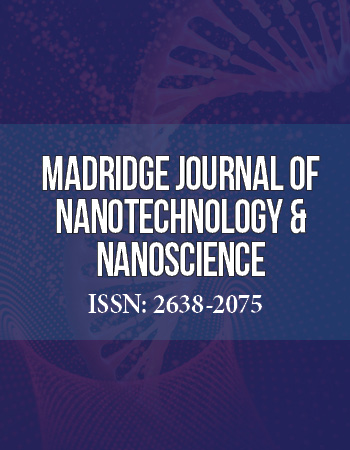International Nanotechnology Conference & Expo
April 04-06, 2016 | Baltimore, USA
Electrical potential of the Titanium solid and mesh surface nanolayer to interact with Burkholderia cepacia
1Riga Technical University, Latvia
2TECHNION, Haifa, Israel
An electrical potential induced by the nanolayer of the biomaterial surface is able to control sorption of the microorganisms. Due to this both tissue regeneration and prevention of inflammations could be influenced, Burkholderia cepacia belonging to the inflammation factors. Solid and mesh Titanium are popular to fabricate implants. Their technological processing, annealing being one of them, provides electrical potential to the surface.
The report focuses solid and mesh Titanium (Ti) annealing to control the material surface electrical potential and Burkholderia cepacia sorption in vitro.
The solid and mesh Ti specimens (1x1x0.05 cm and 2x2x0.03 cm correspondingly) were prepared from the stripes and by foam technology respectively. The specimens were annealed at 600C during 2-4 h.
To identify the surface electrical potential the ultraviolet photoelectron spectroscopy was employed, the photoelectron work function (ϕ) was measured. The value of ϕ was directly connected to the surface electrical potential.
Burkholderia cepacia strain ATCC was grown on agar at room temperature. Next, the bacteria were scrapped off from broth, resuspended in phosphate saline buffer (PSB), washed off and centrifuged. Then the liquid was discarded and supernatant was resuspended in fresh PSB.
The concentration of bacteria increased on 5 and 45 %, correspondingly, if the solid and mesh Ti were annealed for 4 h. The Ti mesh in contrast with the solid Ti had a stronger influence on bacteria concentration.
The experiments demonstrates the Ti surface nanolayer electrical potential is a physical factor that induces Burkholderia cepacia concentration. To decrease it more negative surface electrical potential (the higher values of ϕ ) are preferable.
Acknowledgment: The research was supported by the Latvian Council of Sciences grant 491/2012
Biography:
Prof. Yuri Dekhtyar has the expertise to functionalize and characterize nanoobjects and nanostructured materials. He is the leader in prethreshold electron and exoelectron spectroscopy. He has around 450 publications, leaded a number of the international and national projects. Head of the Institute of Biomedical Engineering and Nanotechnologies of the Riga Technical University, Latvia; Latvian State Prize winner, full member of the Latvian Academy of Sciences.


